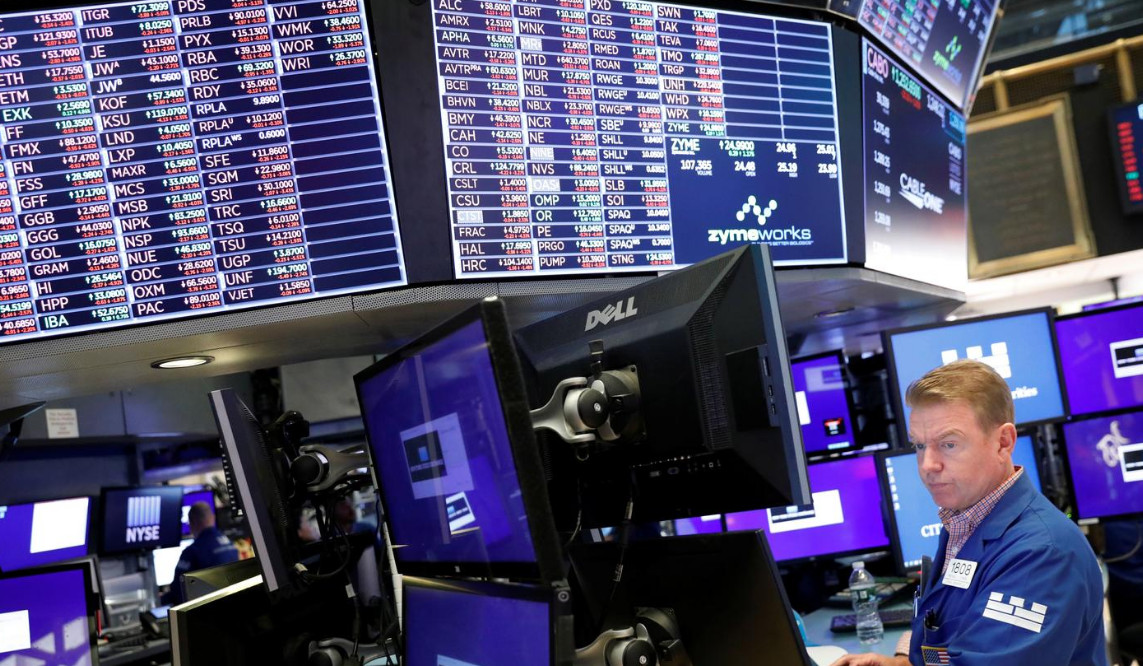How big data can explain the swift financial market rebound

Are you surprised that financial markets have been recovering so quickly after the panic selling in March? The availability of new “big-data” applications in economic analysis might explain a large measure of this phenomenon. Thanks to this innovation, the way economic data influences financial markets and economic policy making has fundamentally changed.
Now we can access daily data for regionalized Covid-19 infection rates to more clearly comprehend the exogenous threat to the economy. Over a few months, we can also monitor daily mobility data to analyze how people react to this threat or to government-imposed lockdowns; to compare mobility in big cities around the globe; to get the daily road performance of trucks and etc. All this data can be combined with other cross-sector information and analyzed through artificial intelligence tools to gain a detailed picture of the economy. Among the most advanced of all those projects is the Economic Tracker of Opportunity Insights. Combining a large number of private data sources, like credit card processors, payroll firms and financial service providers, the tracker is able to display disaggregated statistics on consumer spending, employment and business revenues amongst other Indicators. The data can be further analyzed to learn how households have changed their spending behavior after specific policy measures were enacted.
While all these private data indicators might be not as representative as official statistics, they show clearly whether the economic dynamic picks up or falls back in response to events or policy developments. The newly available data sources will change the world for financial markets on a dynamic basis. Investors care little about the past or whether data is complete or fully representative. What they hate, however, is uncertainty. Thanks to all of the new data sources that have emerged in the past few months, the uncertainty about real economic circumstances is lower than during past cycles. Furthermore, this reduced uncertainty has allowed for timely and targeted policy measures along with prompt assessment and will enable policy makers to amend their directions without delay if needed.
Following the panic selling in March, many investors remained on the sidelines in financial markets as they feared bad economic news or earnings data or additional government imposed lockdowns. Indeed, economic data for Q2 will be extremely negative around the world. But whenever the statistics are published, markets are likely to care less about the numbers than in past cycles, as most daily real time data already show that a slump in the second quarter will be followed by a recovery in the third and fourth quarters. Big data may also make a new nationwide lockdown less likely. Tracing apps and regionalized infection data allow for smarter policy responses in advanced countries. The capability to identify and isolate new regional hotspots means that investors also need to worry less about a second wave and the economic damage it wreaks than they might have thought at the time of the first wave. The strong upward trend of markets in the past few weeks suggest that many investors seem to realize that through big data that the bad economic news that they have been preparing for is not coming as expected.
Beyond this cycle, the increasing take-up of big data applications will have enormous consequences for financial markets. Private data will become more critical, and public data less important such that economists will spend less time forecasting statistics. High frequency data will reduce the market impact that monthly statistical releases have had to date, as news about economic conditions will be priced in incremental steps instead. Overall, this trend will increase the efficiency of financial markets. Eventually this also makes markets more transparent and justifies higher valuations – if volatility is not originating from new sources as well.
-- Contact us at [email protected]
-

Equip young people for the future Dr. Winnie Tang
In late February, the inaugural flight of an air taxi from Shenzhen Shekou Cruise Homeport to Zhuhai Jiuzhou Port took only 20 minutes with an estimated one-way ticket price of 200 to 300 yuan per
-

Are we raising a generation of leaders, or of followers? Brian YS Wong
The essence of education is defined not by the facts it imparts, but the potential knowledge it inspires students to individually pursue on their own. Put it this way – the ideal form of education
-

The urgent need for reforms to sex education in Hong Kong Sharon Chau
Nearly one in every four university students (23%) in Hong Kong has been sexually harassed, according to a 2019 report published by the Equal Opportunities Commission (EOC). A 2019 study found that
-

STEAM should be linked to real life Dr. Winnie Tang
In the 2017 Policy Address, STEM (science, technology, engineering and mathematics) education was proposed as one of the eight major directions to promote I&T development. Since then, funding has
-

Let trees speak for themselves Dr. Winnie Tang
I often say that smart cities start with smart planning, but smart planning presupposes adequate, systematic and up-to-date data. This is important not only for city administration, but also for tree















